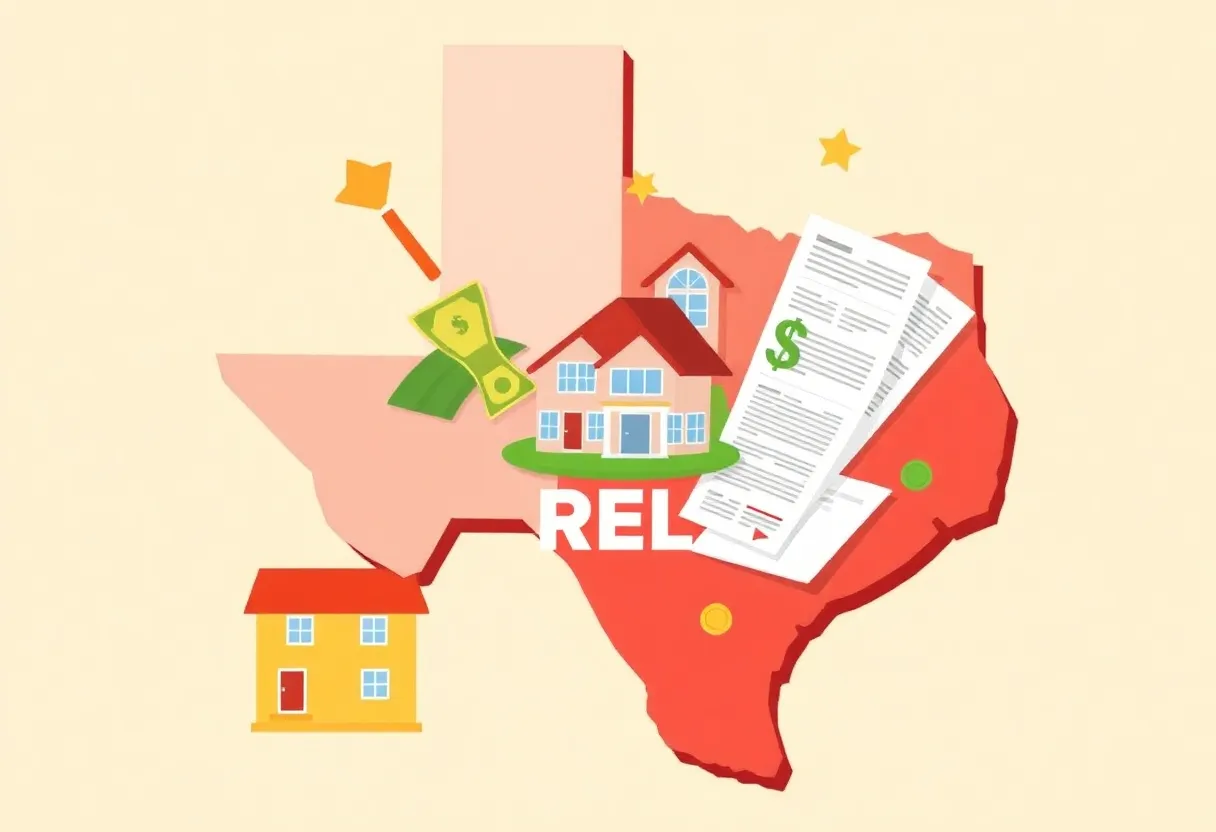News Summary
Homeowners and business owners in Texas are gearing up for a significant vote this November on two property tax relief bills. If approved, these measures could provide substantial savings, including enhanced homestead exemptions and substantial cuts for businesses. The proposed legislation aims to deliver an estimated $51 billion in relief, with a focus on reducing school taxes for homeowners and increasing exemptions for businesses. However, concerns remain about funding and potential tax increases at the local level, as residents prepare to cast their votes on this transformative legislation.
Texas residents are anticipating significant property tax relief as two crucial property tax bills are set to be voted on in November. If passed, these measures could provide an estimated $51 billion in tax relief for both homeowners and business owners, marking the largest property tax relief initiative in Texas legislative history, according to statements made by Texas Governor Greg Abbott.
The key elements of the proposed measures include increased homestead exemptions for homeowners and property tax cuts for businesses. Specifically, the homestead exemption could increase from $100,000 to $140,000, which would save the average homeowner approximately $500 per annum. Additionally, the legislation suggests a boost in the additional homestead exemption for homeowners aged 65 and older, or for those with disabilities, raising it from $10,000 to $60,000, offering substantial school tax relief.
Texas Lt. Governor Patrick indicated that homeowners under 65 could see their school taxes decreased by nearly 50%. Furthermore, when combined with other tax adjustments, seniors and disabled homeowners might experience average tax savings amounting to about $938.72 annually.
On the business side, House Bill 9 proposes an increase in the exemption for income-producing property from $2,500 to $125,000, potentially saving business owners an average of $2,499 each year. The funding for these property tax reductions would be facilitated through a mechanism called “compression,” wherein the state will allocate more funds to school districts, enabling them to lower taxes for homeowners.
Despite the promise of substantial tax relief, some Texans have voiced concerns. Critics, including local officials, worry that the relief measures, which would utilize existing budget surpluses, might lead local governments to raise other tax rates to balance their budgets or cover potential revenue losses arising from the tax cuts. Economic uncertainties tied to federal funding and tariff policies add another layer of complexity to the sustainability of these increased state expenditures.
The proposed tax relief measures are currently part of a larger budget initiative, with an estimate of $10 billion in tax relief expected to be delivered during the legislative session. This total comprises both new cuts and previously established tax measures. The Texas House advanced two Senate bills, SB 4 and SB 23, which aim to elevate homestead exemptions and are designed to benefit over 5.7 million homeowners across the state.
The proposed lifts in exemption thresholds have echoed the sentiment that providing property tax relief is critical for the state’s residents, a sentiment that is mirrored in the reported backing from various segments of the community. However, the success of these initiatives hinges on voter approval in the upcoming November ballot.
In summary, if these measures gain the necessary support from voters, Texans could see significant reductions in their property tax burdens, which would not only aid homeowners but also it is expected to foster a more favorable business environment within the state. The situation remains dynamic, with both sides weighing the benefits of potential savings against the risks posed to local government funding and financial sustainability.
Deeper Dive: News & Info About This Topic
- Houston Chronicle: HFC Loophole Taxpayer Cost Legislature
- Kiplinger: Cheapest Places to Live in Texas
- KLAQ: 10 Cheapest Texas Counties
- Houston Chronicle: Tax Rate Comparison Austin Dallas
- Kiplinger: Texas Property Tax Relief – What to Know
- Wikipedia: Property Tax in the United States
- Google Search: Texas Property Tax Relief
Author: STAFF HERE GEORGETOWN
The GEORGETOWN STAFF WRITER represents the experienced team at HEREgeorgetown.com, your go-to source for actionable local news and information in Georgetown, Williamson County, and beyond. Specializing in "news you can use," we cover essential topics like product reviews for personal and business needs, local business directories, politics, real estate trends, neighborhood insights, and state news affecting the area—with deep expertise drawn from years of dedicated reporting and strong community input, including local press releases and business updates. We deliver top reporting on high-value events such as the Red Poppy Festival, Georgetown Swirl, and Christmas Stroll. Our coverage extends to key organizations like the Georgetown Chamber of Commerce and the Downtown Georgetown Association, plus leading businesses in manufacturing and tourism that power the local economy such as local wineries and historic downtown shops. As part of the broader HERE network, including HEREaustin.com, HEREcollegestation.com, HEREdallas.com, HEREhouston.com, HEREgeorgetown.com, and HEREsanantonio.com, we provide comprehensive, credible insights into Texas's dynamic landscape.






